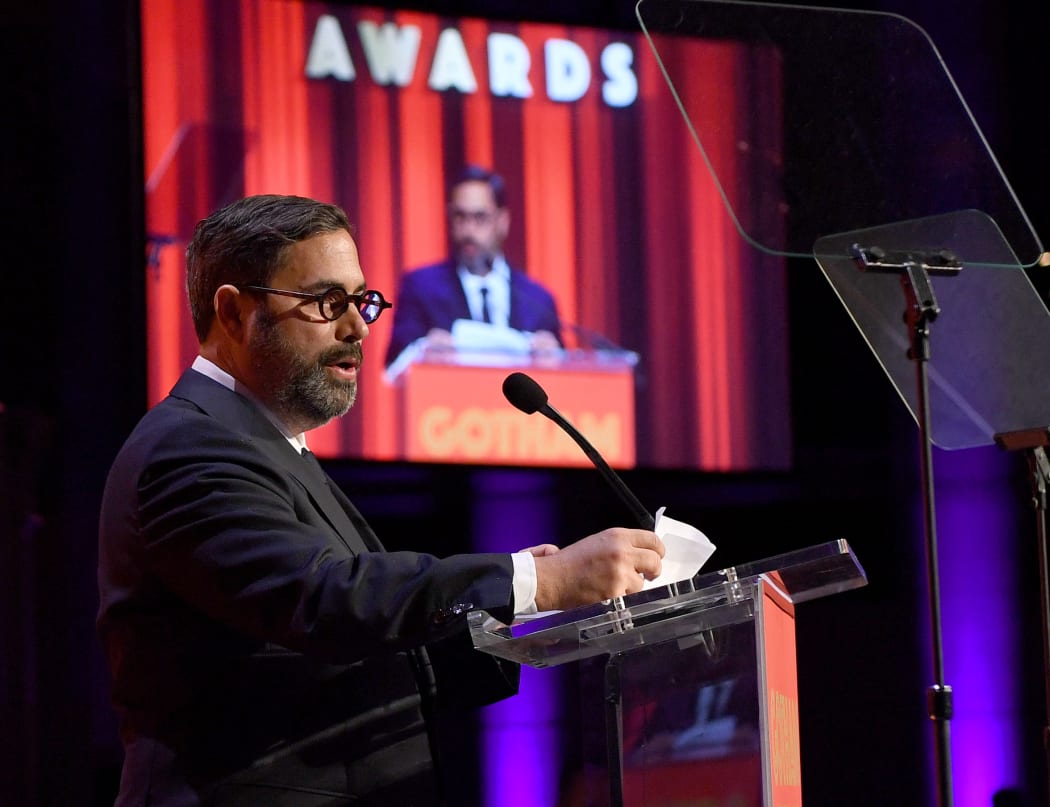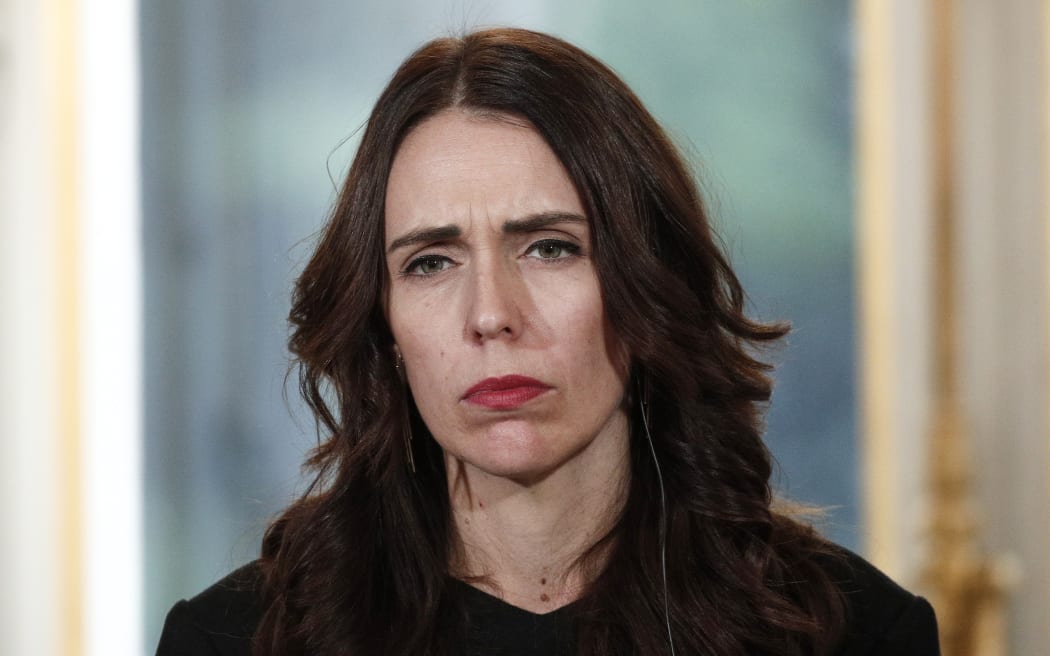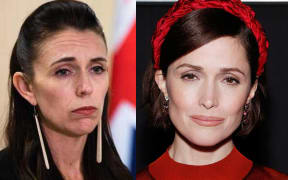By Mohamed Hassan*
Opinion - In the months following the Christchurch attacks, some of us in the Muslim community began to feel a sense of unease with the way this shattering day was being broadcast to the world.

Hollywood producer Glen Basner says he's thrilled to be able bring to market 'an inspiring story'. Photo: AFP
It was unsettling trying to process and grieve the unimaginable, while watching the world celebrate a New Zealand 'success story', a 'heroic' leader, a country overcoming racism and horror.
It felt confusing to see the Prime Minister's face projected on the side of Burj Khalifa before the names and faces of the 51 Muslim New Zealanders lost. The country was being held up as a beacon of tolerance and peace just days after the worst terror attack in our recent history.
But what did we have to celebrate?
The mantra of 'They Are Us' repeated over and over like a prayer soon began to lose its meaning. After March 15, many of us felt more isolated than ever before. We looked over our shoulders when we walked through a crowd. We felt our chests tightening while walking into a mosque. Some of us stopped taking our children to Friday prayers.
Others questioned whether or not to abandon wearing the hijab in search of safety. We were all waiting for more attacks to come, and we did not know where they would come from, or when.
Even two years on, walking to my local North Shore mosque with my father, I couldn't help but watch the stationed police car from the corner of my eye and wonder whether a lone officer could stop a gunman, or what they would do against a driver with murderous intent.
Two days ago, we saw this happen in Ontario, where four members of a Canadian-Muslim family were killed by a man who drove into them intentionally. He had been waiting and plotting for his moment to strike. Two years earlier, another man opened fire on worshippers at a Quebec mosque, killing six people.
Two months after that, Brenton Tarrant walked into Al Noor Mosque, and then Linwood Islamic Centre.
All of us were grateful for the beauty we witnessed in the days that followed, the empathy and warmth and shared grief we were able to experience as a country. It was a moment that shaped us, gave us a path forward through the darkness. But that process has not ended. We are not healed. We are not ready to move on, and the road is long and difficult.
There are dozens of March 15 survivors who are still being treated for their injuries. Men, women and children dealing with deep trauma that will stay with them for the rest of their lives, barring them from being able to ever return to normal life in their societies.
There are families still fighting the government and ACC for compensation. Others who feel silenced and ignored by police, intelligence and a Royal Commission that failed to hold anyone to account. And how do we even begin to talk about those mourning the lost, the heroes whose memories New Zealand can never let fade?
There were times when 'They Are Us' felt hollow. A promise made but not kept. A pat on the back for a job not yet done.
Now, watching this same phrase being used so callously to market and finance a film adaptation makes it hard to think of it as anything more than just another tourism slogan.
Even worse, that the film has chosen to focus not on the tragedy and the victims, but instead on the prime minister and the rest of the country and their response. It is being sold as a feel good story, a portrayal of heroism in the face of terror.
In its essence, it is a story about an act of white supremacy that is centered around white voices, white feelings and white heroism. The irony is nauseating. The lack of self-awareness is profound.

Jacinda Ardern has been held up by Western nations and media as the face of tolerance and grace in the aftermath of a grotesque act of white supremacist savagery. Photo: AFP
As a Muslim, I have never had any faith in Hollywood. It is an industry that for decades was the only source of information for billions of people on Islam and Muslims, and what they saw were monsters marionetted on screen to sell cinema tickets.
Grotesque antagonists screaming nonsensically, cloaked in black, firing AK-47 rifles in the air before getting mowed down by Arnold Schwarzenegger or Sylvester Stallone or Harrison Ford or whatever heroic white saviour was in season that year.
My people, my history, my culture and my religion were plot points film producers in California salivated over in writing rooms, shaking each other's hands while making millions off of our systematic erasure.
When the 'war on terror' began, this machine went into hyperdrive, bolstered by a 24-hour news cycle that bartered in our misery, painting barbaric hordes of angry men dreaming of violence, humiliated women reduced to orientalist fantasies that had chosen their own subjugation, and scheming two-faced immigrant communities plotting terror at the heart of Western civilisation.
For decades, this is the only image of Muslims anyone saw. For decades, this is the only image Muslims saw of ourselves. We were raised on this, and so was everyone else.
Meanwhile, the true toll of war and counter-terrorism was destroying nations, ripping apart communities and leaving Muslim minorities to fend for themselves against the overwhelming whirlpool of hatred, fear and paranoia swirling around us. We were entirely alone, vulnerable and denied even the right to speak for ourselves.
And here we are again, being spoken about but not spoken to. Our intimate and devastating trauma packaged and sold by yet another twinkle-eyed Hollywood producer. Our voices are irrelevant. Our bodies props on a set designed to tell someone else's fable.
Even I am surprised by how much this hurts. How angry it makes me. But it's a reminder the pain is still fresh. These wounds have not healed. I write this from a place of utter exhaustion. I am tired. I do not want to deal with this today, but here we are again.
Many of the details surrounding this film are still yet to be revealed, including whether Jacinda Ardern approved her likeness being represented on screen**, how many of the Christchurch victims were consulted, and how the rest feel about their story being told in this way.
What seems clear is the gleeful tone of the press release, the passing mention of community consultation that feels like an afterthought added by a legal team to stave off social media backlash.
"We are thrilled to bring to market this inspiring story," says Glen Basner, whose production company is now shopping this story and its star-studded lead actress around to financiers.
But this is not an inspiring story. It is a tragedy, one that must always be centered around the Muslim victims and their families. No one else.
And when they are ready to speak again, the rest of us must sit down and listen.
*Mohamed Hassan is an award-winning journalist and poet based in Auckland. He is also the host of The Guest House, a podcast that explores how Muslims made sense of Christchurch mosque attacks.
** Note: Prime Minister Jacinda Ardern's office clarified that neither she nor the government have any involvement in the film.


